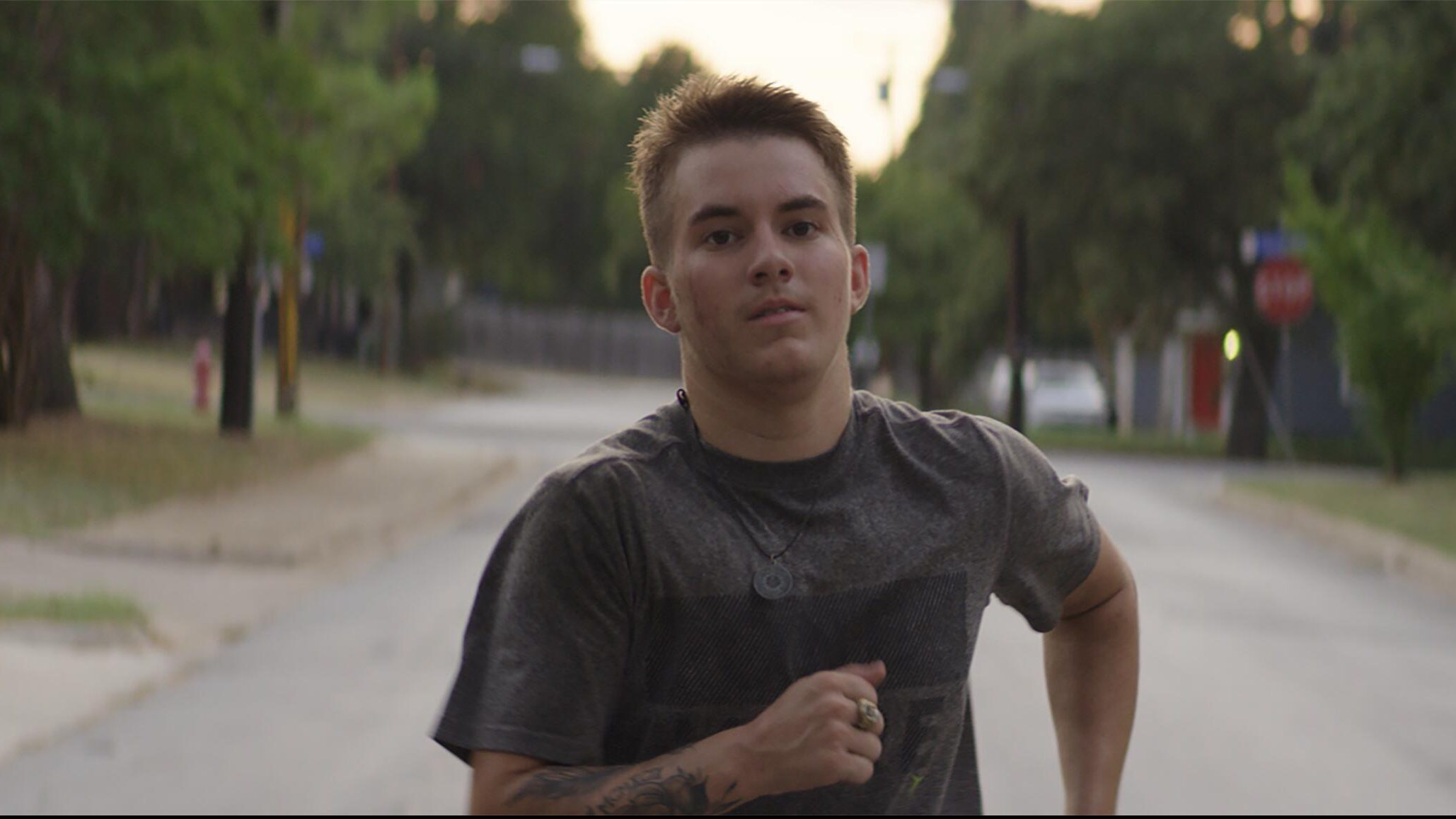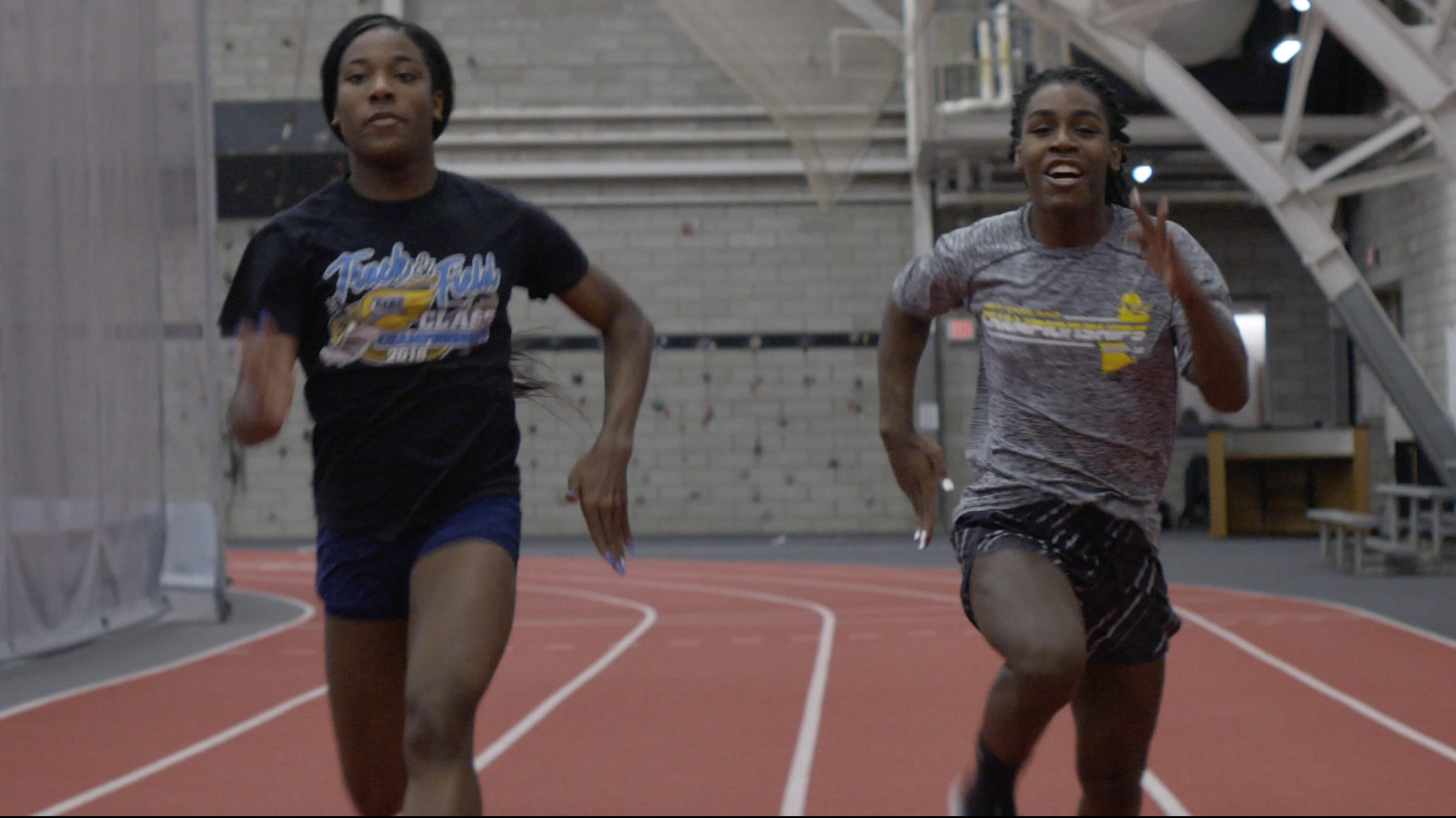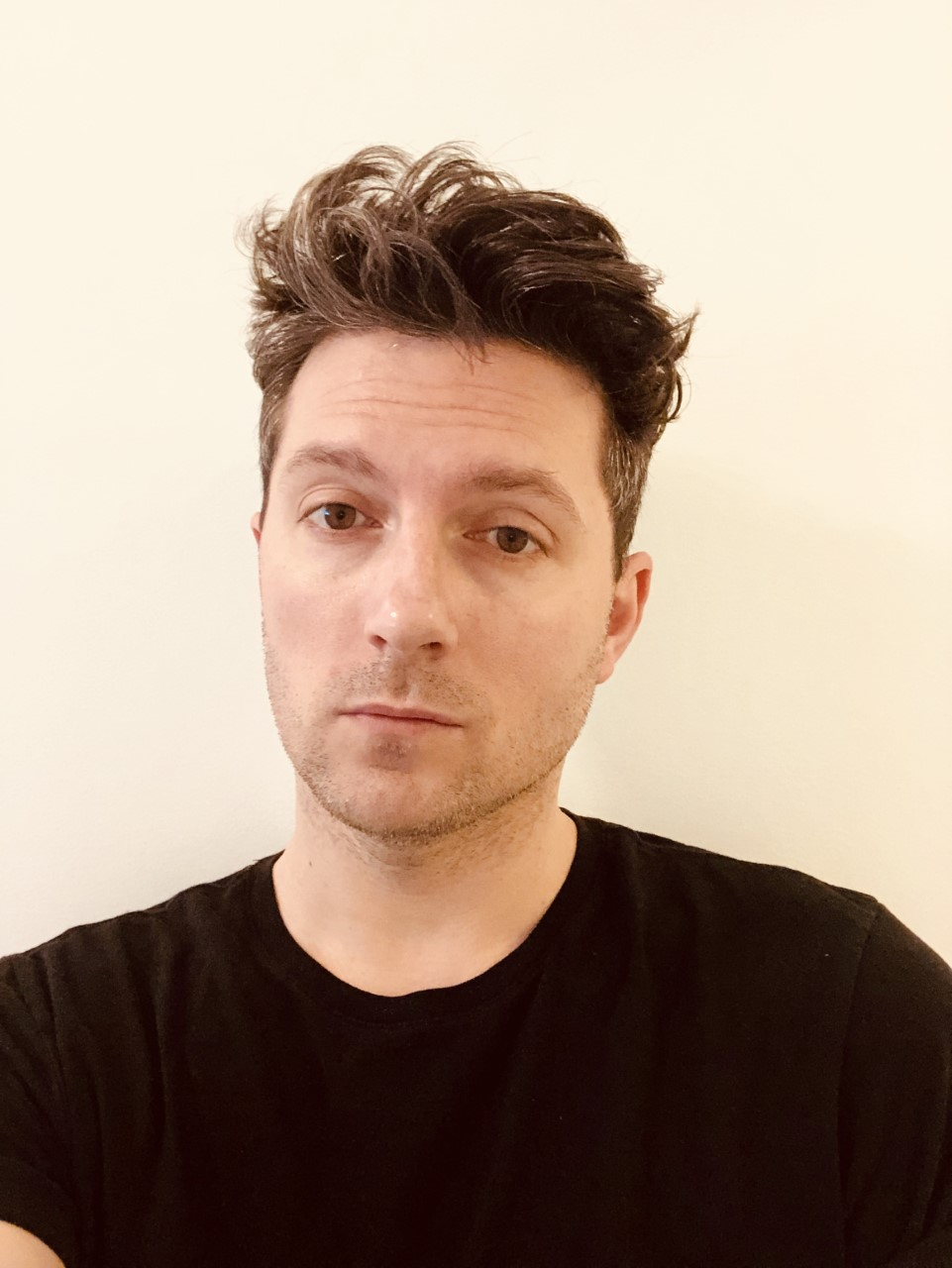

Changing the Game, director Michael Barnett’s documentary about transgender teen athletes, was timely when it premiered at the 2019 Tribeca Film Festival. But in the past few months the debate around whether trans kids—and young trans girls in particular — should be allowed to participate in high school sports has exploded into mainstream consciousness. That’s thanks to a deluge of laws moving through state legislatures across the country aimed at forcing trans athletes to compete in high school sports as the gender they were assigned at birth.
In that context, the film, which follows student athletes Mack Beggs, Sarah Rose Huckman, and Andraya Yearwood, is more urgent than ever. “I just think the film is now just needed more than ever instead of the timing being great,” says Barnett. “Because it’s not great. It’s the opposite of.”
Ahead of the documentary’s premiere on Hulu, GRAZIA chatted with Barnett and executive producer Alex Schmider, who also serves as GLAAD’s Associate Director of Transgender Representation.
Changing the Game premiered at the 2019 Tribeca Film Festival, and it has only become more timely since then. You know, on the one hand, that’s great for your film. But the reasons it is particularly timely now are just awful for kids like those featured in the film. What is it like to release the film for a wider audience right now?
Alex Schmider: It’s been really unfortunate that the film is so relevant because of the legislative targeting and bullying of these young people. And at the same time, I think the film couldn’t come out at a better time, in that Changing the Game is a tribute to these young people who are the heroes in their own stories. There is so much media surrounding trans inclusion in sport, young trans athletes. And simultaneously, most of that media coverage is not actually centering their voices and experiences as people. So, what I’m really proud about with ‘Changing the Game’ is it’s returning their stories to them, which over the past few years have been taken from them and exploited to justify exclusion.
Michael, why did you want to make a film about transgender high school athletes?
Michael Barnett: A few years ago, someone very near and dear to me began their transition and came to me for support. And I quickly realized I didn’t have the tools necessary to support them in the way that I knew that I could if I just sort of did my work. So, I really just started a journey to be an ally, to provide love and support. And while I was doing that, I came across Mack’s story. It’s a really compelling story. And I still wasn’t planning on making a film. But I just couldn’t shake it. I’d gotten Alex’s name from a friend and I just reached out. I cold-called him at GLAAD and said, “Should we make this film? Should it be me as the filmmaker? Do you wanna be a part of it?” And right then we started this journey.
Alex, what made you want to get on board this particular project?
Schmider: Working at GLAAD, I get a lot of filmmakers that come to us and ask about where they should go with a certain project or how they can make it. So, when Michael and [producer Clare Tucker] came to me asking, “Is there a place for this? Are we the right people to tell it?” I was very hesitant and skeptical. Even me, as a transgender man myself — ‘I was uncomfortable about the subject matter. I was bringing my own preconceived notions about what this means to have trans inclusion in sport. But in meeting Michael and Claire, I realized these were filmmakers that were committed to making sure that these stories were told with authenticity and accuracy and respect for the subjects.
Would you mind talking about your initial discomfort with the topic of trans athletes?
Schmider: All of us live under the same media narratives, and so we’re educated and miseducated depending on what those news stories are. What I hadn’t fully interrogated or questioned is that there is one specific narrative that media typically cares about, which is when a trans athlete is winning. And that is then the only narrative that makes it out into our culture and is understood as the full reality. What I love about ‘Changing the Game’ is that we see Mack, Sarah, Andraya, and Terry in their lives, participating in sports and sometimes winning and sometimes losing, but having families and communities of friends and support and love, which are stories that we rarely ever see. And I think one of the most amazing things about ‘Changing the Game’ is that so many people are not only going to see these young people as kids just trying to be themselves and playing the sports that they love, but they’re going to see these diverse communities of support that they maybe didn’t imagine existed. I’m so thrilled that young trans people will get to see that those communities of support and love exist for them. There are going to be people who see this film, or who have been following the debate specifically around not allowing trans girls to compete against cis girls, and they will have heard a lot of rhetoric about science and biology and testosterone. What do you want people to understand about that aspect of this debate?
Barnett: Well, you know, our film isn’t full of science and data. Our film is full of kids trying to be kids and trying to live authentically. I think the overwhelming majority of people who come to this come to the word “fair.” And I think it’s the wrong conversation. What you’re supposed to get from sport is mental health, physical health, community, discipline. Sports are there to sort of make you better, healthy. And what we’re doing is removing kids from having that. And I think that is wildly unfair.
Talk to me about choosing the teens that you feature in the film. How did you find Andraya, Mack, and Sarah and why did you want to spotlight their stories in particular?
Barnett: I found Mack’s story first. I found it probably about a half a year before the story really became sort of a big national news story. We reached out, and we ended up spending nearly a year flying out there without a camera, to just let his family know, let him know that our intentions weren’t the same as the hijacked media narrative. We wanted to let him and his family know that when the smoke clears, if you really want to tell your story, we’ll be here.
We actually filmed with more kids than are in the film and we just had to make some tough decisions. It was a really interesting confluence of events, particularly with Mack and Andraya. When we started filming, no one was talking about any of this. And they just happened to become the kinda epicenter of the issue

It’s really something to see scenes of people harassing these kids. You’ve got this image of a very angry man in the crowd insisting that Mack, who is being forced to wrestle girls, is a boy. And then you’ve got a lot of women who are angry that Andraya is being allowed to compete against other girls. What do you think those moments illustrate about this debate when you consider them side-by-side?
Schmider: It’s the central tension of what we were talking about earlier about belonging. It’s as if these young people can’t belong anywhere. The policy in Texas required that Mack compete against girls. That was the policy. Those people in the stands were yelling about the policy. They weren’t actually angry at Mack, but that’s where they were taking out their anger and frustration. And with Andraya and Terry, for trans girls specifically, they face such harmful and violent pushback to their very existence. Even if they weren’t playing sport, society is so hard to live in as a trans girl and woman. So, I think it presents that tension of where trans people exist. Which is to say that no matter where we are or what we’re pursuing or how we’re participating, it’s never enough.
Barnett: Some of those parents showed up and they didn’t have kids at the event. They showed up there to brazenly bully and verbally assault Andraya and Terry. I couldn’t believe what I was witnessing. And it also reeked of a lot more than what was going on contextually. It reeked of sexism. It reeked of racism. Obviously transphobia. And I just kept coming back to: This is just a 17-year-old kid, just trying to live her life.
Alex, for GLAAD and for those of us who want to see equality for trans people, what’s the plan? Where do we go from here?
Schmider: The plan is to get to know these trans young people who are being targeted with such harmful legislation and conversation. Because regardless of whether or not some of this legislation passes, the messages that are being sent to trans youth is that you don’t belong, when in fact, they absolutely do. A path forward is to get beyond the talking points, the surface level conversation, the preconceived notions, and really do that work to question, if you do feel uncomfortable, why? Once you get there and you figure out that a lot of these arguments are tethered to sexism and racism and ultimately anti-LGBTQ groups pitting girls and women against each other and making it so that there is one very specific way to be a girl or woman, get to know trans young people. And see them as the kids that they are.














